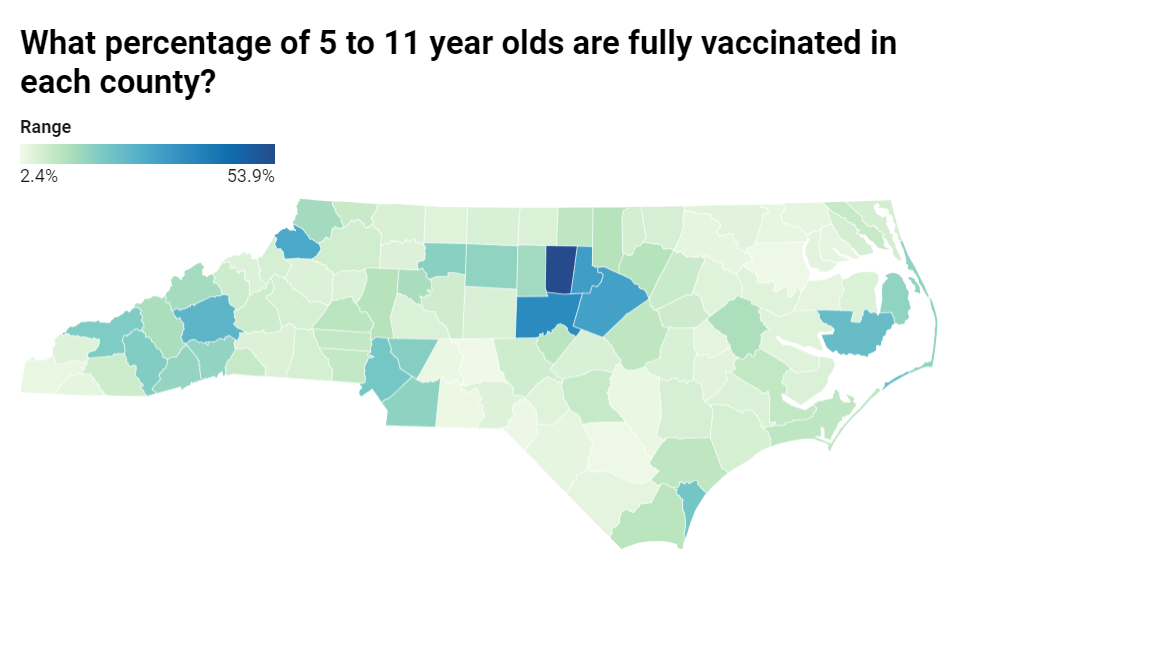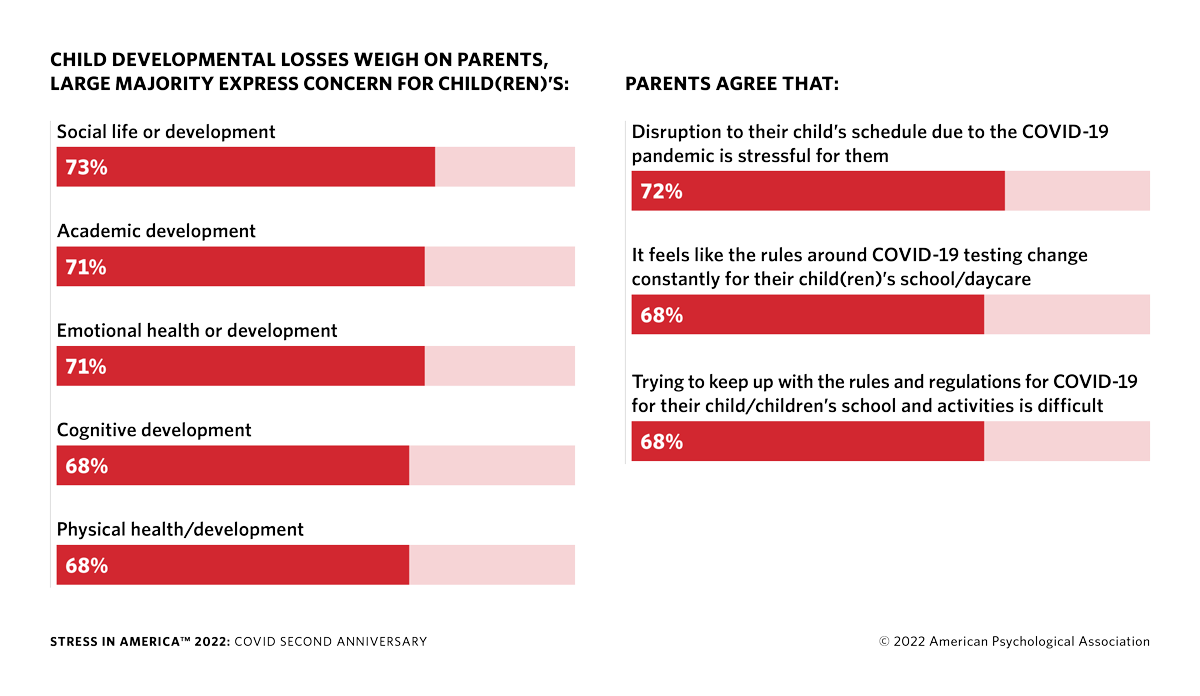

The length of the COVID-19 pandemic is made tangible by looking at North Carolinians born in March 2020—they are already two years old. When they were newborns, there was a stay-at-home order. The parents of those children had to navigate temporary and permanent child care closures. Shortly after those babies turned one, most of their adult family members were eligible for vaccination. While there have been significant changes for older children and adults since these babies were born, the families of these children are balancing the desire to return to “normal” as restrictions are lifted with the reality of parenting children too young to be vaccinated, all while case counts once again are starting to rise.
Vaccines for Younger Children
The Pfizer vaccine has been available for most children aged 5-11 since late October, but the national effort to vaccinate children has largely stalled. In North Carolina, vaccination rates for children aged 5-11 vary greatly from county to county. Data from the time that Omicron was the dominant variant show that while the Pfizer vaccine did not necessarily prevent infection, the vaccine protected children from severe COVID-19 and hospitalization. On May 17, the FDA authorized a Pfizer booster dose for children in this age range.

Last month, Moderna submitted its application to the Food and Drug Administration for a two-dose regimen for children aged 6 months to 4 years, using a quarter of the strength of an adult dose. Pfizer is expected to submit an application on a three-dose regimen, at 1/10 of the strength of an adult dose. The FDA’s decision on the Moderna application is expected in June, but it remains unclear what uptake will be for that age group. A poll from the Kaiser Family Foundation in April found that only 18% of parents of children under age five say they will get their child vaccinated as soon as a vaccine is approved for their age group, and 11% of parents say they will only vaccinate their children if required.
School and Daycare Guidance
In mid-February, NCDHHS released an updated version of StrongSchoolsNC, a public health toolkit for K-12 schools, that aligned with new guidance from the Centers of Disease Control and Prevention. Contact tracing in K-12 schools is no longer required, and children who are exposed to COVID-19 are no longer excluded from school unless they have symptoms or have a positive antigen or PCR test. Children and staff who have a positive test can return to school after 5 days if they are not experiencing symptoms and wear a mask (unless an exemption to mask use applies) for 10 days after the positive test. The ChildCareStrongNC guidance, also updated in mid-February, requires children who have COVID-19 to be excluded from child care for 5 days after the first day of symptoms or positive test. Child care facilities are no longer required to close classes due to a positive case.
While these changes in guidance prevent children from being excluded from school and child care settings for long periods of time, many parents with immunocompromised children and family members are concerned that this change in guidance puts their families at risk. Nearly all North Carolina school districts lifted their mask requirements shortly before or after March 7, making children who wear a mask for health reasons or those following the guidance to wear a mask after a positive test outliers amongst their peers.
Burden of the Pandemic on Children and Families
2021 findings from the Child Mind Institute showed that children and adults have been experiencing higher levels of emotional distress than before the pandemic. Recent data from the American Psychological Association show that parents are increasingly concerned about the effects of the pandemic on their children’s development and relay the burden of keeping up with changing policies and regulations.

The burden of the pandemic is compounded for hourly workers who navigate gaps in child care or school without paid leave. The North Carolina Essentials for Childhood project focuses on economic supports for families (specifically centered around family-friendly workplace policies) as way to ensure safe, stable, and nurturing environments for children and their families. School and child care provider closures throughout the pandemic have highlighted the need for paid family leave and the inability to economically recover without access to child care. The Carolinas Pandemic Preparedness Task Force members and presenters to the task force have relayed the importance of providing support for parents and caregivers. The report that will be released later this fall by this task force will incorporate recommendations about paid family leave.